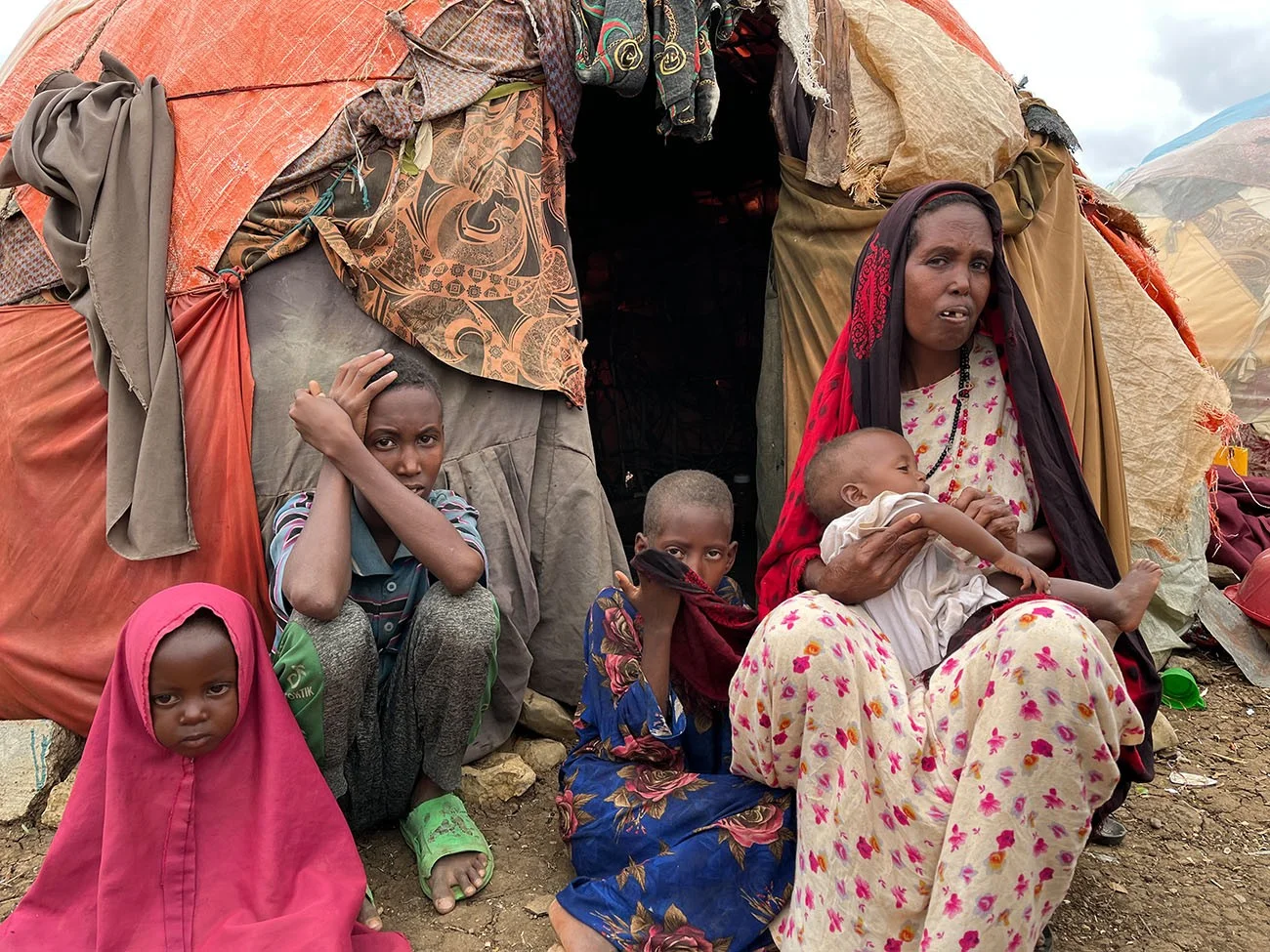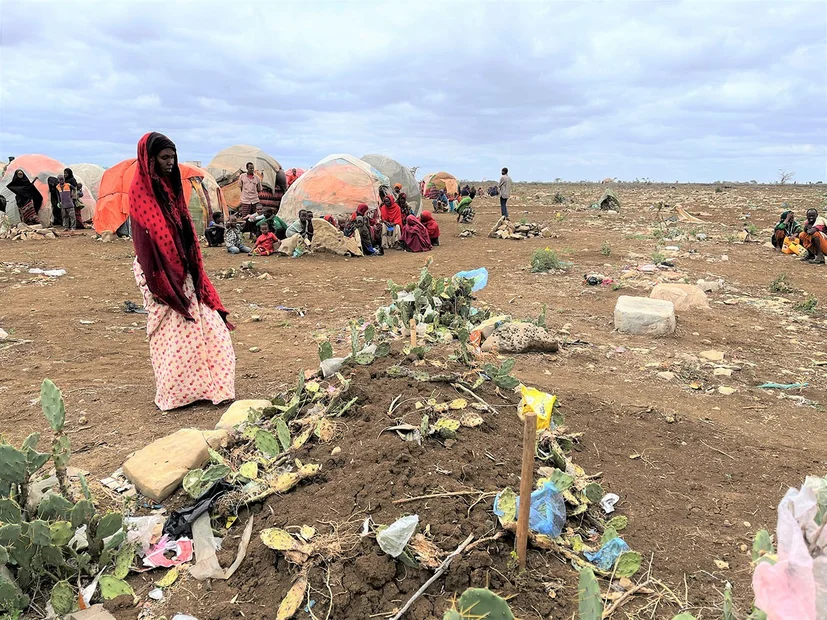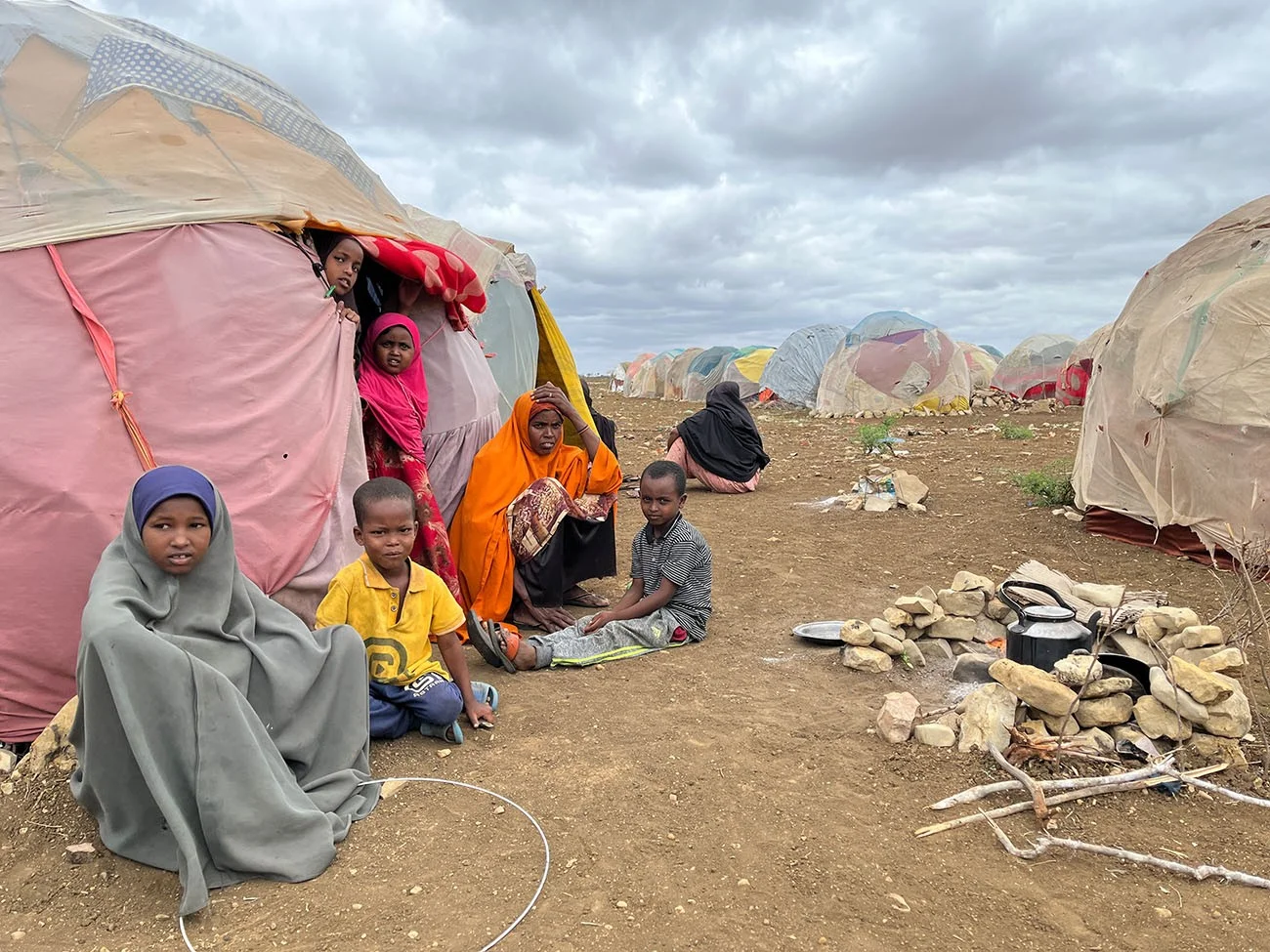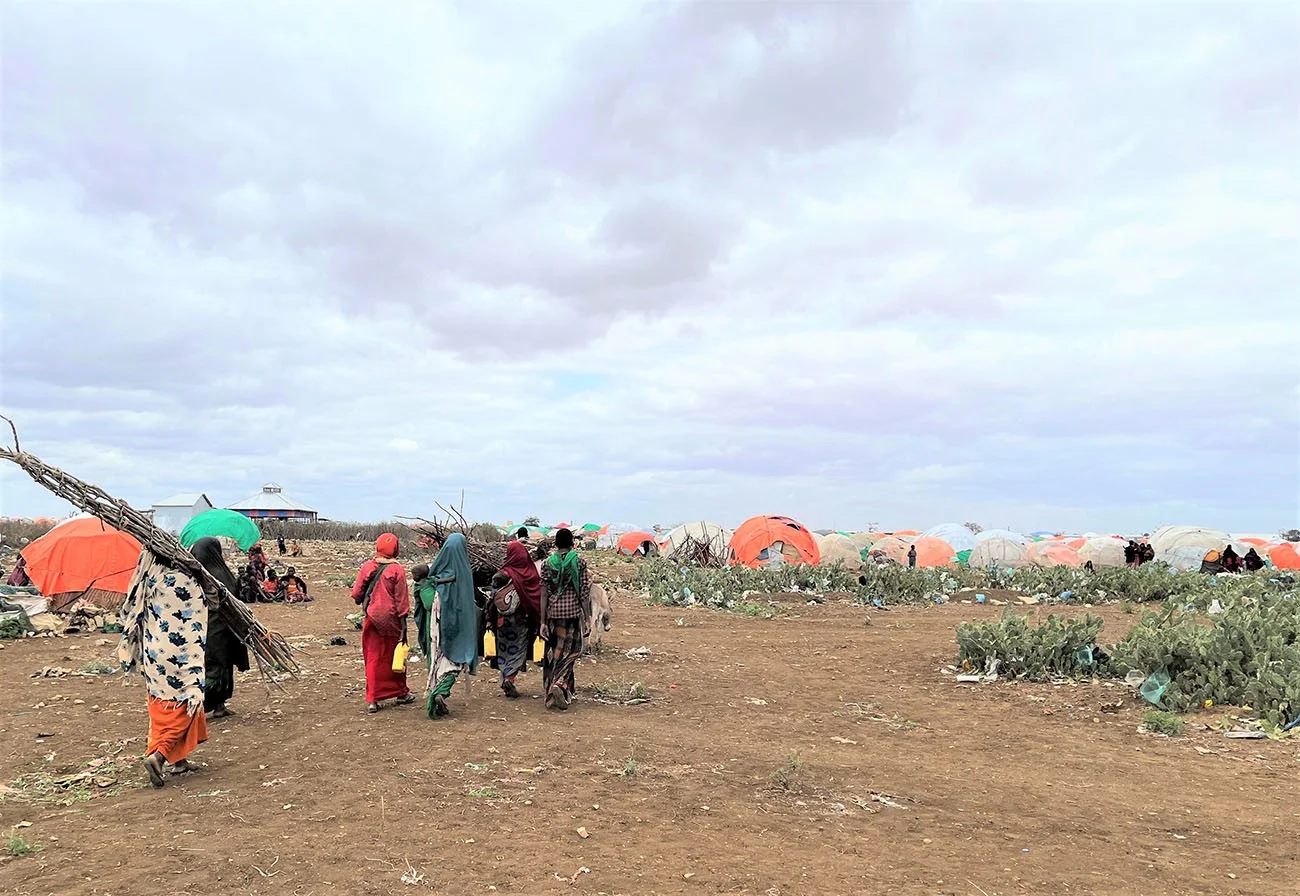Hunger and the ongoing drought in southwestern Somalia are forcing countless families to flee to urban centers in desperate search of food and shelter. The journey is long and arduous, and for some it’s already too late. A report by Robin Giri, UNICEF staff member, Baidoa/Somalia, on September 29, 2022.
Hagarka IDP Camp, Baidoa: “There was nothing more I could do for my son Salat. He was already very sick on the journey here”, says Fatuma Mohamed Omar, her eyes fixed on her youngest son, Bille. She shifts the nine-month-old boy back and forth on her knees and then looks us straight in the eye. “He died because he was hungry, because we didn’t have enough food.”
Fatuma and her five children, including 10-year-old Salat, left their village in Malagda exactly three weeks ago. They walked for three days through the desolate countryside, withering under yet another failed rainy season that has devastated crops and decimated livestock. When they finally reached Baidoa, they were given a space in the Hagarka camp for internally displaced persons (IDPs), overflowing with hundreds of families. It is one of many camps along this stretch of rutted road leading to the town of Dinsoor.
“Salat died the next day”, she says, her hands stroking little Bille’s head. “I cannot grieve for him, because I have to find food for my other children”, she says, turning to look at the three children sitting next to her on the ground.
Eleven-year-old Dahir, her oldest boy, stares at his feet. His two younger sisters Mariam, 6, and Milian, 4, look away, their innocent little faces contorted by all the confusion of the past weeks and months and by the hopeless silence of the refugees in the camp. Distant, and yet still connected by the thread of shared loss.
It has now been established that Salat died from complications due to severe acute malnutrition, a condition caused by the lack of food whereby the body becomes so weak and emaciated that any common illness can prove fatal.
This is a tragedy, but Fatuma and her children are just one of a million families in Somalia exposed to this toxic mix of climate-induced disaster and decades of conflict.
According to the UN, more than seven million people in Somalia are suffering from acute food insecurity, and UNICEF estimates that half a million children will suffer from severe acute malnutrition this year.
“It is the same for all our neighbors. Our animals are dying, the wells are drying up, and we have no option but to come here and look for food”, says Fatuma. “The drought before was bad, but at least our animals survived and we had something to live on. Now we’ve lost everything.”
Baidoa has become one of the main centers for internally displaced persons from the southwestern region, and local partners say that at least 100 people arrive every day in the more than 400 IDP camps. All humanitarian agencies, including UNICEF and other UN agencies, are working with a renewed urgency to avert the looming famine.
UNICEF and its partners are stocking health and nutrition centers with therapeutic foods and medicines to prevent malnutrition and treat common illnesses; increasing emergency trucking for clean drinking water; conducting vaccination campaigns and nutrition evaluations of children in the camps; and rolling out a new Education in Emergencies program to provide children with a space to learn.
UNICEF is also working to prevent cases of gender-based violence and to protect children from abuse and harm, by setting up a 24/7 hotline. This includes a referral and treatment center for victims at the Ceebla One Stop Centre in the Bay Regional Hospital.
The number of deaths attributable to hunger and its consequences is increasing by the day. Local partners warn that more needs to be done and that they need more resources to prevent a catastrophe. The women and children are tired from the long walk to this strange place dotted with orange and white tents, where they will build a new home under a tarpaulin propped with string and twigs. Once proud people, now forced to wait for a handout just to survive.
We follow Fatuma to the outskirts of the camp, her thin rubber sandals stirring up small clouds of dust. She stops and stands before a mound of overturned earth, scarred by a few dead cacti and empty plastic bags that litter the outskirts of this ever-expanding camp. This is where she buried her son. “He was a good boy, my son, I wish he didn’t have to die.”



